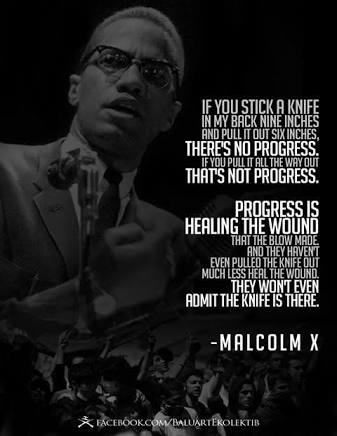Most every founder was. Heck Ben Franklin owned a slave while a member of an anti-slavery society.
In Virginia at the time, apparently he had to file a deed of emancipation, no mention of a fee.
However, what would block the deeds of emancipation would be if those people were collateral for some of those loans. There would be a lien against them, like a car with an outstanding loan.
Sources talk about his debts, but never mention the security for those loans. How curious. I can’t prove that’s what happened, because no one talks about it, but some history does come into sharper focus through the lens of slavery capitalism.
Back then, I suspect that the life of a Repo Man was very intense. ![]()
Yeah, that tracks.
IIRC, The use of enslaved persons to finance debt is discussed throughout this book.
Ah! Thank you! Even some pages about the Panic of 1837 don’t mention slavery or slave mortgages at all. Sometimes I wonder is there’s really a huge silence on the subject, or am I taking crazy pills?
(I mean The heavy debt load of slavery mortgages as a factor of southern resentment against northern finance interests in the antebellum period sounds like a great thesis topic. So where is it?)
Hm. The index refers to the Panic of 1835.
From a review:
As his landmark 1999 study, Soul By Soul: Life Inside the Antebellum Slave Market, made clear, Johnson is one of our most creative historians, and his mastery of metaphor and analogy is put to good use here turning the capitalist map on its head. In the place of the Panic of 1837, Johnson highlights the “Panic of 1835," where fears of a potential slave insurrection led to a “pogrom" (47) that left at least sixteen slaves and seven white men dead. While scholars of the “market revolution" have pointed to factories, made possible by the innovation of the joint stock company, as the synecdoche of capitalist development, Johnson instead crowns the steamboat the ultimate break between past and present. The mills of Lowell “used energy according to a formula that was thousands of years old," while steamboats, the third leading investment sector in the Mississippi Valley after 1830, harnessed enough power to reverse gravity, or to “run the entire factory complex at Lowell" (6), and, far too often, to explode in spectacular displays of carnage. These explosions should not be understood as “accidents," Johnson explains, but rather as “portents" or “symptoms" of the violence of capitalism. The steamboat becomes the reigning trope of his volume.
My guess is that you can find many references in this book when it comes out in April.
There’s a google books preview.
It focuses explicitly on Southern banks though.
But the issues at the center of this inquiry still all reside at the immediate intersection of banking and slavery. I am not concerned with questions about the profitability of southern banks, their impact on general economic development at the state and local levels, or their role within the national and international macro economy. I also largely ignore northern and European banks, whose relationship with slavery was usually more indirect, through the financing of the cotton trade or through investment in southern bonds. Although these questions and relationships are not irrelevant to the system of slavery, they are not dependent upon it either. Bank financing of the international cotton trade, for example, could have occurred in a counterfac- tual universe without slavery. This study instead focuses exclusively on those ways that southern commercial banks directly, knowingly, and explicitly interacted with the slave system.
“Actions speak louder than words” - should be way more trivial than it turns out to be.
The more you learn about the “founding fathers” the more you discover they were normal politicians.
I concur.
TJ can rot in hell with the rest of the slavers, as far as I am concerned.
The cognitive dissonance is because at that time, the slaves were regarded as a different form of human being, that was not the same as the European. If you were raised with that world view, as many people 300 years ago were, then you could have the great idea of the ‘self evident’ truths that all men are created equal, and at the same time believe that the slaves were not fully men.

So again, hypocrisy.
Compartmentalization and rationalization does NOT make the slaver’s choices and behavior any more ‘forgivable.’
Doesn’t pass the sniff test. There were already abolitionists. TJ was a Francophile, yet France had outlawed slavery by 1794. Britain followed suit in his lifetime.
He knew better and didn’t give a shit. TJ wasn’t noble. He was a hypocrite.
Jefferson was an evil dick who knew exactly what he was doing. Much more so than most of his contemporaries.

The decision to racial slavery was a conscious choice, not because no European had never met a person with darker skin before. Europeans were WELL aware of Africans, Arabs, Asians, and Native Americans by this point, and were not ignorant of their common humanity. Their interactions by the founding of this country would have been extensive and have happened in a variety of situations. And as enslavers spent years in close proximity with the people they enslaved, they were often purposefully ignoring that common humanity (which would have been obvious to them) for their own financial benefit.


No lens. They are intimately intertwined. Slavery and capitalism cannot be separated from one another. Eric Williams described (in 1944) how slavery funded the industrial revolution, and so the roots of capitalism in the purely foundational sense:
Others have made more systemic arguments about the idea of capitalism and its roots in slavery:
One of the better arguments for the treatment of workers in the system of of capitalism:
The two cannot be separated. Our modern capitalistic system in the US is a direct descendant of the slave system.
ETA: Archive version: https://archive.ph/J7IXT of the NYTimes piece
Thanks.
There is a large amount written about the wealth generated by the labor of the enslaved for the benefit of the slavers. That’s hard to ignore, although many try.
What I’m interested in is the other side of slavery capitalism: The vast capital asset the enslaved represented just by existing, and what happened when Lincoln snapped his fingers and abolished (most) slavery.
| Number | Total | Today $32.89 | Notes | |
|---|---|---|---|---|
| Slave mortgages | 250,000 | 250,000 | Ballpark number, probably undershooting | |
| Price per person | $750 | $187,500,000 | $6,166,875,000 | |
| Fractional Reserve Banking | 5% | $3,750,000,000 | $123,337,500,000 |
I pulled 1/4M mortgages out of thin air. I suspect that it was much higher. Also, the fractional reserve multiplier doesn’t reflect the further amplification once the money has been bounced around a few times.
Besides which, Sally Hemings was of majority European ancestry and the children Jefferson fathered with her even moreso. They would have appeared outwardly “white” even to their bigoted contemporaries.
I’m more focused on the continuing human cost, but here’s some information on reparations for your calculations:
also this

